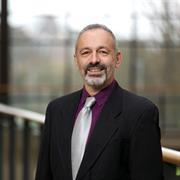Content
This session will help participants develop a more grounded and realistic perspective on the practice of leadership, its significance, and its limits. The session will position the programme by openly discussing our notions and assumptions about the concepts and practices surrounding management, leadership and change. Specifically, the idea of leadership as a ‘craft’ will be introduced, emphasising the importance of experience, engagement, intuition, and emotional awareness. In developing this idea of leadership as craft, focus will be brought to bear on how participants can enhance their leadership skill and expertise through
everyday practice.
This session will focus on identifying a set of practical, implementable leadership behaviours and activities that participants can deploy to enhance their effectiveness, impact and performance. Specific attention will be focused on feedback as a key vehicle for personal and organisational learning. Opportunities for learning exist in the workplace, yet many times these opportunities are missed. A key leadership role is to exploit these opportunities to enhance individual, team and organisational learning. The focus then shifts to the assessment and reflection on the leadership behaviours that participants can deploy to enhance their impact in the workplace. Specific leadership practices will be discussed and applications of these practices will be reviewed in a series of case studies
This session looks at the concept of leadership coaching as a critical tool for organisational change. Change is essential for organisations to grow and adapt to today’s rapidly shifting marketplace, yet people and organisations are naturally resistant to change. Leadership coaching can facilitate productive change in persons, teams, and systems by enabling leaders, managers, and employees to uncover potential that might otherwise go untapped. This session will introduce participants to the importance of coaching as a vehicle to enhance organisational capability. Specifically, participants will be exposed to the GROW model and to
the importance of developing coaching conversation skills to enhance performance and motivation.
In advance of this three-day short course, participants will be required to read a number of articles and cases to enhance interaction and group learning in the course. Articles will be used to explore specific themes that a participant can utilise for their personal leadership journey. Cases are descriptions of leadership situations that will be used to develop a participant’s insight about alternatives to
their leadership approach.
Meet the Faculty
Our dedicated team of faculty are widely recognised as skilled educators, ground-breaking researchers and accomplished authors. Through publishing, consulting and teaching they leverage their business expertise and field-based research to deliver programmes, encourage participants to develop new ways of thinking, widen their perspectives and to understand their own challenges and capabilities. The faculty present topics in a range of engaging methods such as ‘action learning’ projects, case studies, role plays, individual assessment and one-on- one coaching, so as to deliver a unique and lasting learning experience.

Séamas is Full Professor of Organisation, Technology & Society at UCD College of Business and former Director of the Centre for Innovation, Technology & Organisation (CITO). He holds a PhD in Management/Organisation Studies from the University of Cambridge, and a Bachelor’s degree (Hons, 1st class) in Electrical Engineering & Microelectronics from UCC. He also holds a Diploma in Business and Executive Coaching from UCD, and is a practicing executive coach. Séamas’ research interests are broadly concerned with the relationship between knowledge, technology, and social organisation. Key themes include the management of organisational change and its politics; leadership and coaching cultures; psychosocial aspects of organisation - the role of affectivity and embodiment in processes of knowing, organising, and relating.

Jacob Eisenberg is an Associate Professor at the UCD Smurfit Graduate School of Business in Dublin, Ireland, where he has been teaching on the school's top ranked programs: FT MBA, E-MBA, CEMS MIM and the MSc Business. Jacob earned his PhD in Social/Organizational Psychology at Colorado State University (USA) and his research and teaching interests are primarily related to Organisational Behaviour, Human Resource Management and Cross Cultural Management. Jacob has lectured in several countries, including Canada, Cyprus, Denmark, Hong Kong, Hungary, Israel, Singapore and USA.
Jacob has worked on training and consulting projects with both public and private organizations, including IBM, Microsoft, ICON, Irish Prime minister's office and the UN and has supervised numerous graduate student teams who delivered consulting projects for various multinationals including IBM, Henkel, Oracle, HP, McDonalds, and Accenture. Jacob has held several high profile leadership positions, including a three-year terms as the Academic Director of the MSc Business Programs in UCD, the university's largest Masters program, which includes 10 different Masters programs and over 650 students. He served as Chair of the Cross-Cultural Management Faculty Group at the CEMS Global Alliance, whose Masters in International Management is ranked among the top Masters programs in the world.

Eileen holds a Master’s qualification in Business & Executive Coaching from UCD Smurfit Executive Development and a primary degree in Psychology from UCD. She is also qualified as a practitioner in Systemic Coaching and Constellations and a Coach Supervisor. She is accredited at Senior Practitioner level with the EMCC. Since establishing her coaching practice in 2012 her passion is working with senior leaders and their teams developing their potential and achieving high impact results.
She brings a specific passion and interest in the impact of systems on individuals and teams, bringing a systemic and psychological lens to her work as a coach, while working in a creative manner. As a coach her distinctiveness is in combining her real world leadership and business experience with her coaching qualifications, experience, presence and style. Eileen has a great passion for teaching and sharing this work, she has been part of the UCD Tutor panel since 2015.











